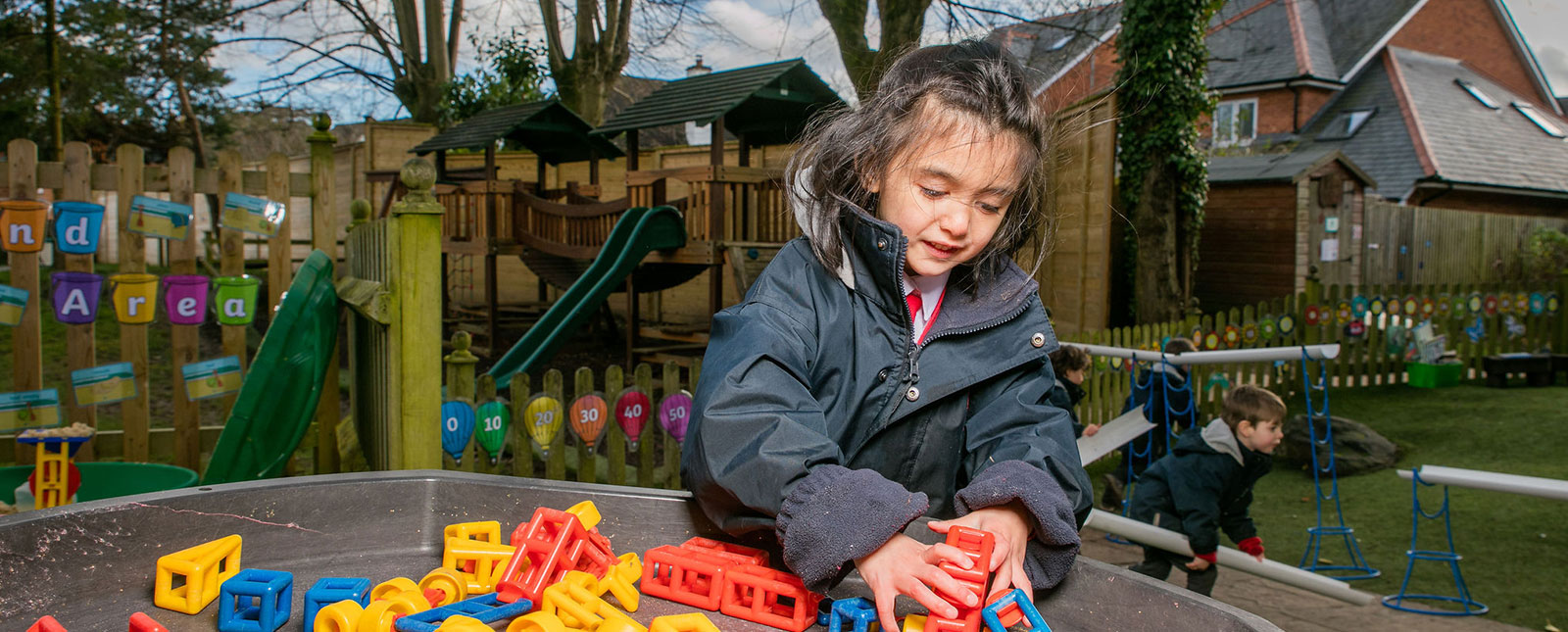
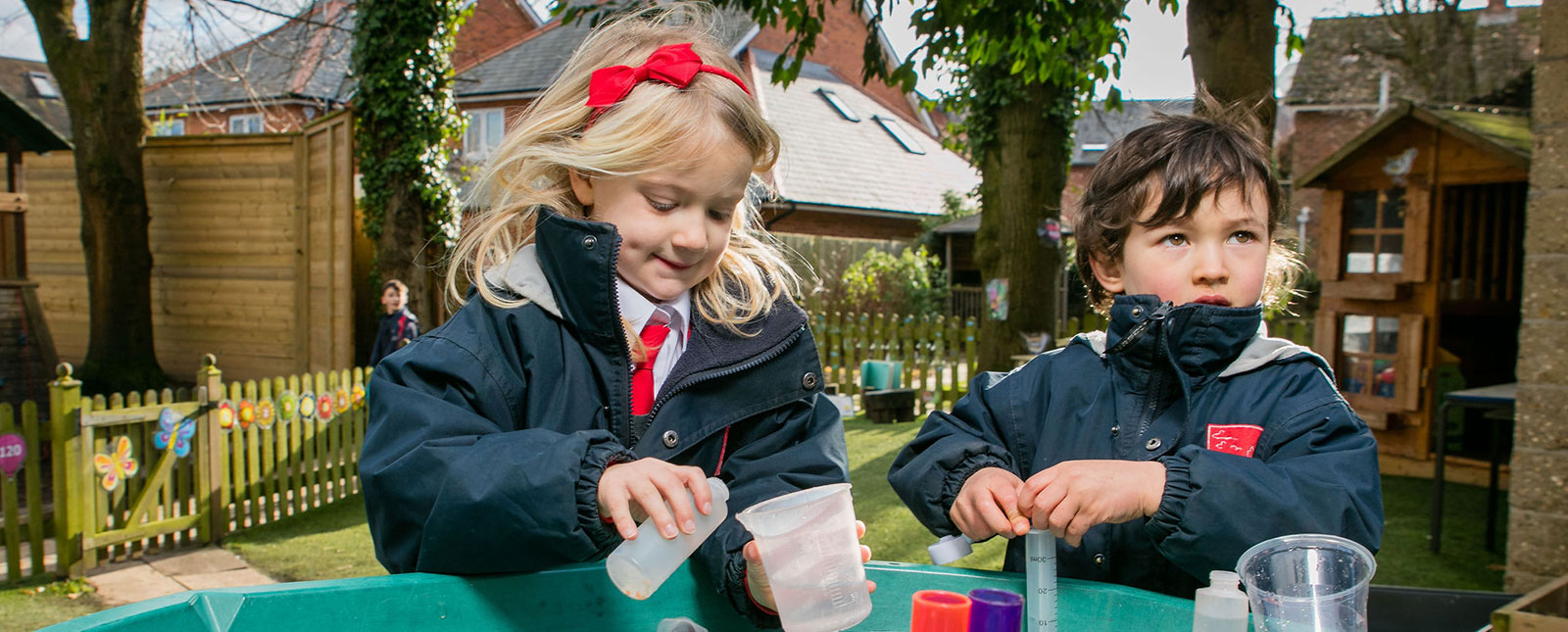
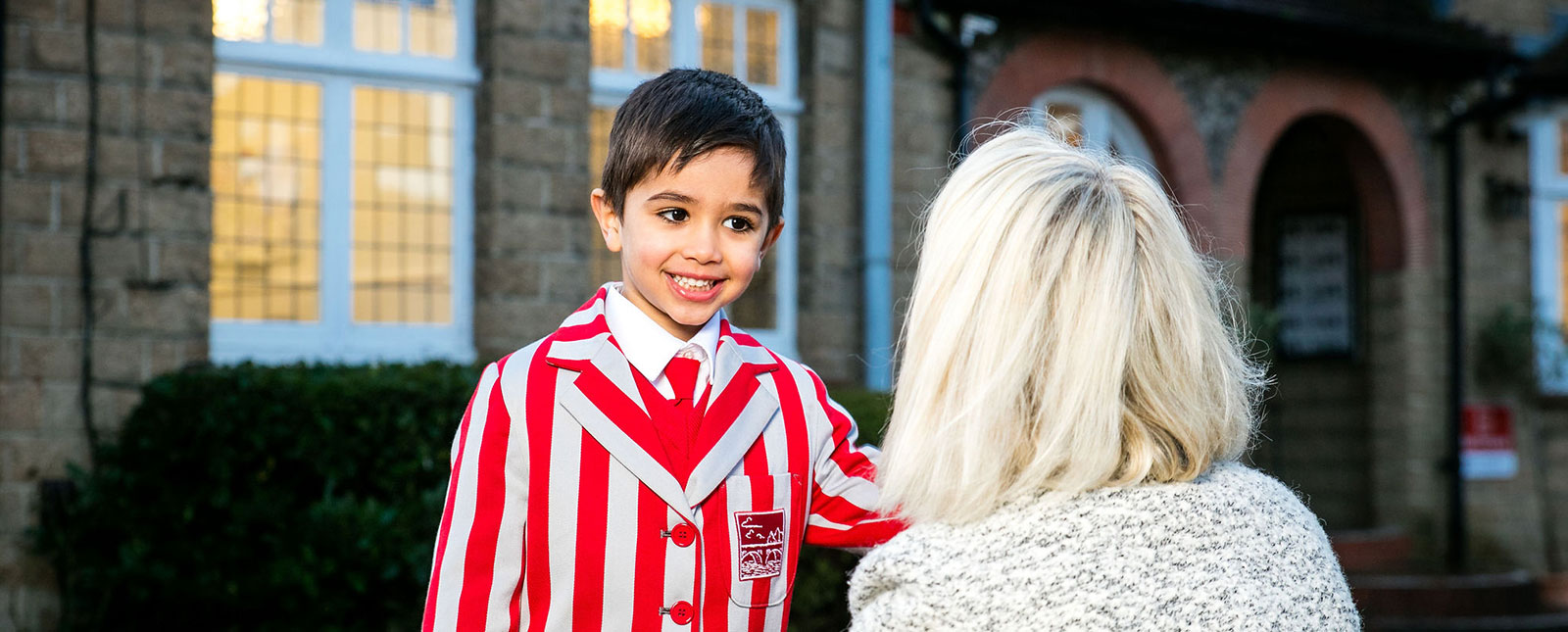




Settling your child into school happily is the most important thing that we do at Caversham Prep. We encourage parents to stay with their child as long as they need to, but when they see the early years learning garden, that's not usually very long!
From the EYFS onwards, pupils make excellent, and sometimes exceptional, progress across the full range of the curriculum and other activities. Standards in literacy and numeracy are particularly high. In the EYFS, the majority of children reach, and many exceed, the expected Early Learning Goals - ISI
Our children learn to read through a strong phonic scheme. The Reception children will start to bring phonics cards home with them from the beginning of the Reception Year, to support this teaching. The children will read every day and bring their reading books home every evening.
Caversham Prep is a ‘print-rich’ environment. Each week’s learning is planned around a book. The books are banded into themes, for example, ‘Growing and Changing’ or ‘Christmas’. The books will be a mixture of fiction and non-fiction and many will already be familiar to the children (which adds to the fun) - ‘The Very Hungry Caterpillar’, for example. Most of that week’s areas of learning will be planned using the text as a source. Parents are invited to come to a meeting at the start of September to learn more about our approach and how you can help your child to read.
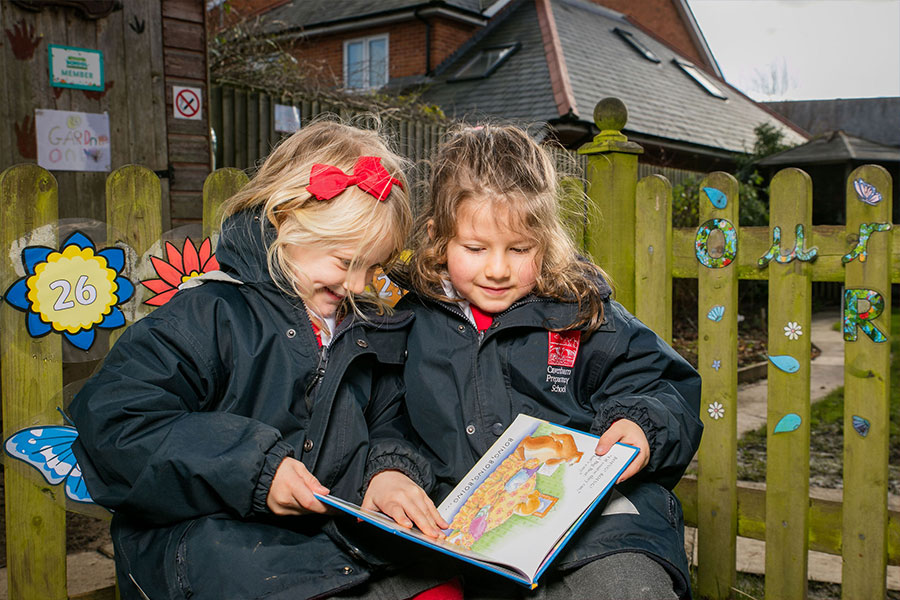
’Emergent Writing’ is the term given to the beginning of the writing process where children gain enough confidence in their phonic choices to start to make their own words, sentences, and then stories. The children write every day and all of the children will be writing with some independence by the end of the Reception year.
Daily maths lessons include number, shape, pattern and representing data in Venn Diagrams or bar graphs.
The children work confidently with numbers and can count in twos, fives and tens in Reception class, with some children using numbers up to one hundred with confidence. - ISI
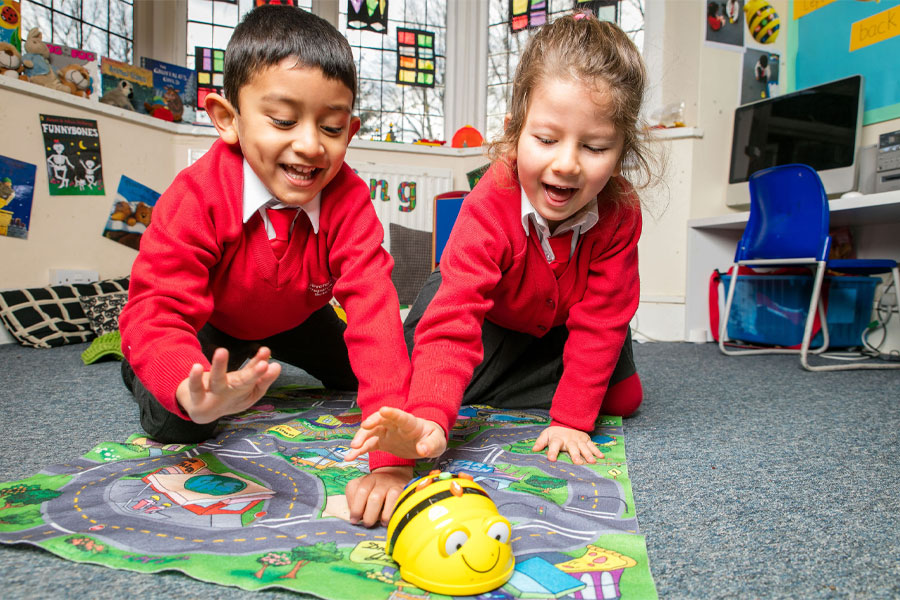
Science, such as hunting for bugs, happens in the woods or school garden. Social skills such as turn taking and respecting one another are encouraged through show and tell, and circle time. The children are taught PE twice a week and begin learning to swim in the summer term. They attend the annual sports day and swimming gala. They children are taught French as their first modern language.
They are given excellent opportunities to be creative, think independently and develop their physical abilities. - ISI Report
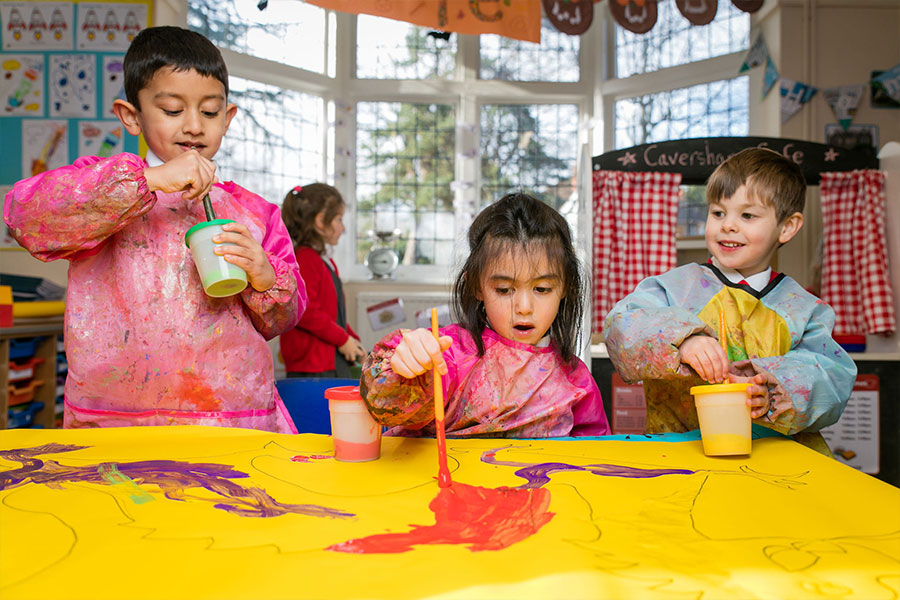
On entry to the Reception class, each pupil’s abilities are assessed so that their progress can be monitored and individual learning plans put in place which set challenging targets for future development. - ISI Report
The Reception Class starts with an online Baseline Test (CEM) to help us to measure progress throughout the year. They are then continuously assessed according to the Early Years Foundation Stage learning goals, done mainly through a tracker system called ‘Evidence Me.’ This allows us to make clear judgements on whether your child is ‘working towards’, ‘expected’ or ‘exceeding’ the Early Learning Goals. The results are uploaded and sent to Reading Early Years as part of the result gathering for Reading.Gov.uk.
Parents can see and share in their children’s tracker at any time. They will also be given a copy of the tracker photos at the end of the Reception Year. A team from Reading Early Years visits us every three years to moderate our evidence and our results.